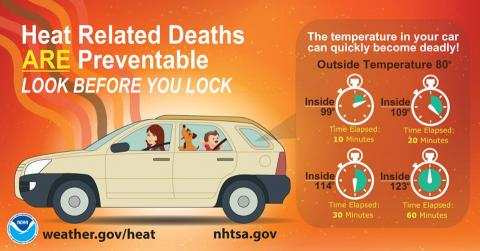

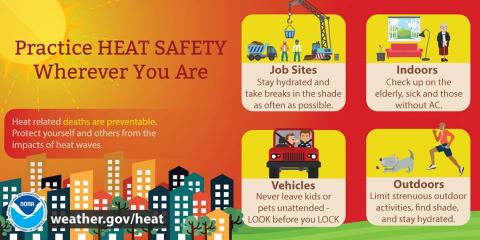
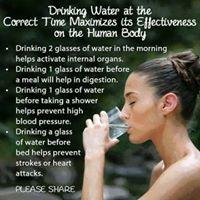
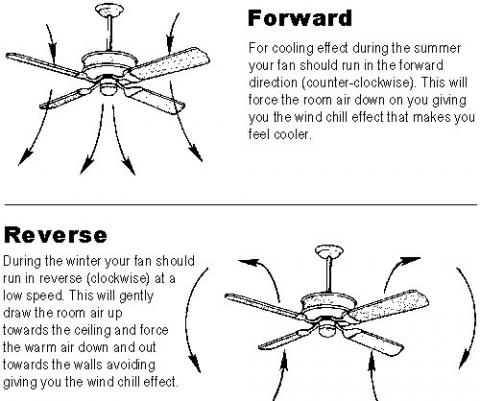

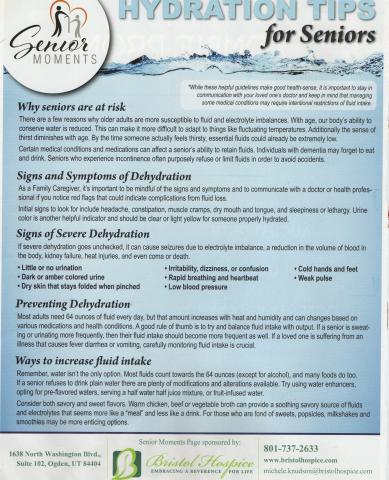
Aging Matters
It's not even summer and parts of the country struggle with record highs. Hot weather is a big concern for older adults, especially those living with chronic medical conditions. The factors that directly affect the risks are lack of fluids, absence of cold air-conditioning, excessive clothing, overcrowded places, and physical inactivity.
If you have a chronic condition, here are a few ways to avoid the risks of heat and humidity. Wear lightweight clothing, put on a wide-brimmed hat when outdoors, take frequent water breaks, apply sunscreen, and never leave a child or pet unattended in a vehicle. But stay indoors where it's cool during the peak heat, 10 AM to 5 PM. If you do not have air conditioning, visit public places like the local library, the shopping mall, the local senior center, or movie theaters.
Older bodies have trouble regulating its temperature. The elderly, the young, the obese, and individuals living with compromised immune systems are at greater risk. High humidity interferes with evaporation of sweat, a body's way of cooling itself. Be cautious and pay attention to the warning signs and symptoms of a heat stroke:
If you suspect a heat stroke, call (911) immediately. To prevent a heat stroke, drink lots of fluids to avoid dehydration and lessen vigorous activities in hot and humid weather.
Get my newsletter. Send an email to Carol@seniorcare.com with newsletter in the subject line.
Carol Marak, aging advocate and editor at Seniorcare.com. She's earned a Certificate in the Fundamentals of Gerontology from UC Davis, School of Gerontology.